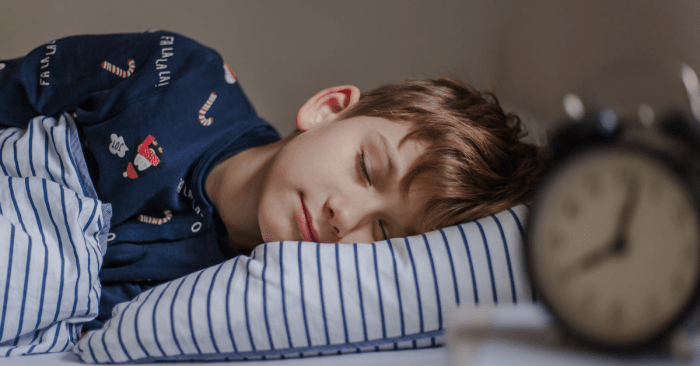Ever feel like your little one is a night owl, battling bedtime with the energy of a superhero? Naomi, our fearless protagonist, knows exactly how you feel. Join us as we dive into Naomi’s journey of overcoming nighttime fears, learning the importance of sleep, and discovering the power of a good night’s rest.
We’ll explore the science behind sleep, offer practical tips for parents, and show how a little imagination can transform bedtime into a fun adventure for everyone.
From battling imaginary monsters to conquering separation anxiety, Naomi’s story is relatable, heartwarming, and packed with tips and tricks that will help you and your child conquer those bedtime blues. Ready to say goodnight to sleepless nights? Let’s get started!
The Importance of Sleep for Children

Sleep is essential for children’s growth and development. Just like adults, children need adequate sleep to function properly, and a lack of sleep can have serious consequences.
Benefits of Sleep for Children
Getting enough sleep is crucial for children’s physical, cognitive, and emotional well-being.
- Physical Development:During sleep, children’s bodies release growth hormones, which are essential for physical growth and development. Sleep also helps to repair and rebuild tissues, strengthen the immune system, and regulate hormones.
- Cognitive Development:Sleep plays a vital role in memory consolidation, learning, and problem-solving skills. Studies have shown that children who get enough sleep perform better academically and have improved concentration and attention spans.
- Emotional Development:Sleep is essential for emotional regulation. When children are well-rested, they are better able to manage their emotions, cope with stress, and build healthy relationships.
Consequences of Sleep Deprivation in Children
Sleep deprivation can have a significant impact on children’s physical, cognitive, and emotional health.
- Physical Health:Sleep deprivation can weaken the immune system, making children more susceptible to illnesses. It can also lead to weight gain, high blood pressure, and other health problems.
- Cognitive Function:Sleep-deprived children may have difficulty concentrating, remembering information, and solving problems. They may also be more impulsive and have trouble making decisions.
- Emotional and Behavioral Problems:Sleep deprivation can lead to irritability, mood swings, anxiety, and depression. Children who are sleep-deprived may also have behavioral problems, such as aggression and hyperactivity.
Establishing Healthy Sleep Routines for Children
Creating healthy sleep habits for children is essential for their overall well-being. Here are some tips for establishing a good sleep routine:
- Set Consistent Bedtimes:Children thrive on routine. Establishing a consistent bedtime and wake-up time helps regulate their sleep-wake cycle.
- Create a Relaxing Bedtime Routine:A calming bedtime routine can signal to your child that it’s time to wind down. This might include a warm bath, reading a book, or listening to soothing music.
- Limit Screen Time Before Bed:The blue light emitted from electronic devices can interfere with melatonin production, a hormone that helps regulate sleep. Avoid screen time for at least an hour before bed.
- Make Sure the Bedroom is Dark, Quiet, and Cool:A dark, quiet, and cool bedroom environment can promote restful sleep. Use blackout curtains, a white noise machine, or a fan to create a peaceful sleep environment.
- Avoid Caffeine and Sugar Before Bed:Caffeine and sugar can interfere with sleep. Avoid giving your child caffeine or sugary drinks before bed.
Overcoming Nighttime Fears

Nighttime fears are common in children, and they can be a source of anxiety and distress for both kids and parents. These fears can range from simple worries about the dark to more intense anxieties about monsters or being separated from loved ones.
Fortunately, there are many effective strategies that parents can use to help their children overcome these fears and enjoy peaceful nights.
Identifying Common Nighttime Fears
Understanding the root of a child’s fear is crucial for addressing it. Common nighttime fears in children include:
- Fear of the Dark: The darkness can be a source of anxiety for children, especially if they are unable to see what is around them. This fear can stem from their imagination running wild, leading to worries about unseen dangers lurking in the shadows.
Naomi’s nighttime fears were totally out of control, making her super cranky during the day. It was like she was living in a scary movie, except she didn’t have the option to just turn off the TV! Her parents finally realized that maybe a good night’s sleep was the key to a more chill Naomi, so they started working on bedtime routines.
And guess what? Getting enough shut-eye really did help, but sometimes Naomi’s imagination would still get the best of her. Her parents had a secret weapon though: reading true crime stories! They’d dive into cases like the ones featured in True Crime Solved 27 Solved Cold Cases That Bring Closure To Disturbing Crimes , and Naomi would be so fascinated by the real-life mysteries that her own fears would fade away.
Turns out, the real world was a lot scarier than her own imagination, and that was a good thing for Naomi’s sleep!
- Fear of Monsters: Many children are afraid of monsters, both real and imaginary. These fears often arise from stories, movies, or even their own imaginations, and can lead to nightmares or reluctance to sleep alone.
- Separation Anxiety: Separation anxiety is a common fear in children, especially during the toddler and preschool years. This fear can manifest as a reluctance to be away from parents, even for short periods of time, leading to anxiety at bedtime or during the night.
Strategies for Coping with Nighttime Fears
Once you’ve identified the source of your child’s fear, you can begin to address it. Here are some strategies for helping children cope with nighttime fears:
- Nightlight: A nightlight can be a comforting source of light in a dark room, making it easier for children to see their surroundings and feel less anxious. It can also help to create a sense of safety and security.
For example, a small, battery-operated nightlight shaped like a favorite animal or character can be a great option.
- Talking About Fears: Encouraging children to talk about their fears can be a powerful tool in helping them to overcome them. By listening to their concerns and validating their feelings, you can help them to feel understood and supported. This can also help to reduce the power of their fears by bringing them into the light of discussion.
Naomi Learns the Importance of Sleep is a heartwarming tale about a little girl who conquers her nighttime fears and learns the magic of a good night’s rest. It’s a story that’s perfect for kids and parents alike, reminding us all of the power of a good night’s sleep.
Want to join Naomi on her journey? Download And Listen Here and get ready for some sweet dreams!
- Calming Bedtime Routine: Establishing a consistent and calming bedtime routine can help to signal to your child’s body that it’s time to wind down and prepare for sleep. This routine could include a warm bath, reading a book together, or listening to calming music.
Consistency helps to create a sense of predictability and security, which can reduce anxiety and promote restful sleep.
The Role of Parental Reassurance and Support
Parental reassurance and support are essential in helping children overcome nighttime fears. When a child is afraid, they need to know that their parents are there for them and that they are safe.
- Offer Comfort: Reassure your child that you are there for them and that they are safe. A gentle hug, a warm voice, and a reassuring presence can go a long way in calming a child’s fears.
- Validate Feelings: Validate your child’s feelings, even if they seem irrational. Avoid dismissing their fears or telling them to “be brave.” Instead, acknowledge their feelings and let them know that it’s okay to be scared.
- Provide Support: Offer practical support, such as checking under the bed for monsters or staying in the room until they fall asleep. This can help to build trust and confidence, and show your child that you are there for them.
Book Review

Naomi Learns the Importance of Sleep is a charming children’s book that explores the importance of sleep and helps children overcome bedtime fears. It follows the story of Naomi, a young girl who struggles with nighttime anxieties and avoids going to bed.
Naomi finally got the hang of sleep, no more late-night meltdowns! It’s like she read the parenting bible, “Doing time for the Last time A message to the new born!” Doing time for the Last time A message to the new born! Seriously, though, the book helped her parents understand the importance of a good night’s sleep for everyone, even tiny humans.
Now, everyone’s getting their beauty rest and the house is a lot less chaotic.
Naomi’s Nighttime Fears
Naomi’s bedtime routine is a battleground. She fears the shadows, the sounds of the night, and the unknown lurking in the darkness. She makes up excuses to stay awake, like needing a glass of water or wanting to read just one more page.
Her parents try their best to comfort her, but their attempts are met with resistance. Naomi’s fear is real, and it prevents her from enjoying the restorative power of sleep.
Overcoming Fears
Naomi’s parents, understanding the importance of sleep, decide to take a different approach. They encourage her to express her fears, listen to her concerns, and offer reassurance. They create a calming bedtime routine that includes reading stories, soft music, and a warm bath.
They also involve her in choosing her own pajamas and bedtime toys.
The Benefits of Sleep
Naomi’s parents explain the benefits of sleep. They tell her how sleep helps her grow, learn, and be happy. They describe how sleep helps her body and mind recover from the day’s activities. They also emphasize the importance of sleep for her overall health and well-being.
Naomi learns that sleep is not something to be feared but rather something to be embraced.
A Nighttime Adventure
One night, Naomi’s parents suggest an adventure. They tell her that while she sleeps, she can visit magical places, meet fantastical creatures, and experience amazing things. They encourage her to imagine and explore the world of dreams.
Naomi’s journey to conquering bedtime fears is a total rollercoaster ride. It’s like, “OMG, sleep is the BEST!” one night, and then the next, it’s a whole monster-under-the-bed situation. To keep track of all the sleep-training tips, bedtime routines, and those super important doctor appointments, you’ll need a seriously awesome planner.
Check out this 2023-2024 Monthly Pocket Planner for Purse 2 year Pocket Calendar 24 Month January 2023 to December 2024 with Federal Holidays To do list … & Password Log Geometric low poly Cover – it’s perfect for keeping all your sleep-related goals organized.
With a little planning, Naomi will be snoozing like a champ in no time!
Naomi’s imagination takes flight, and she starts to look forward to bedtime. She realizes that sleep is not a time for fear but a time for adventure.
Sleep as a Superpower
Naomi learns that sleep is a superpower. It gives her energy, focus, and creativity. She starts to see the difference sleep makes in her life. She feels happier, more energetic, and more able to learn and play.
Naomi’s bedtime fears gradually fade away, and she embraces the restorative power of sleep.
Last Word

So, remember, sleep isn’t just about counting sheep – it’s about empowering your child to face their fears, grow their brains, and become the best version of themselves. Just like Naomi, your little one can learn to embrace the power of sleep and wake up ready to conquer the world.
And hey, maybe even conquer those pesky nightmares along the way. Sweet dreams!
FAQ Summary
What are some common bedtime fears kids experience?
Kids often fear the dark, monsters, being alone, and even separation anxiety from their parents. It’s completely normal!
How can I help my child overcome their fear of the dark?
Try using a nightlight, a calming bedtime routine, and talking about their fears in a comforting way. You can even create a “monster spray” together to banish those scary creatures!
What are some tips for creating a relaxing bedtime routine?
A warm bath, reading a book, listening to calming music, and snuggling with a favorite stuffed animal can all help create a peaceful atmosphere. Keep the lights dim and the screens off for at least an hour before bedtime.
How much sleep does my child need?
The amount of sleep your child needs depends on their age. Check out the National Sleep Foundation’s website for age-specific sleep recommendations.

